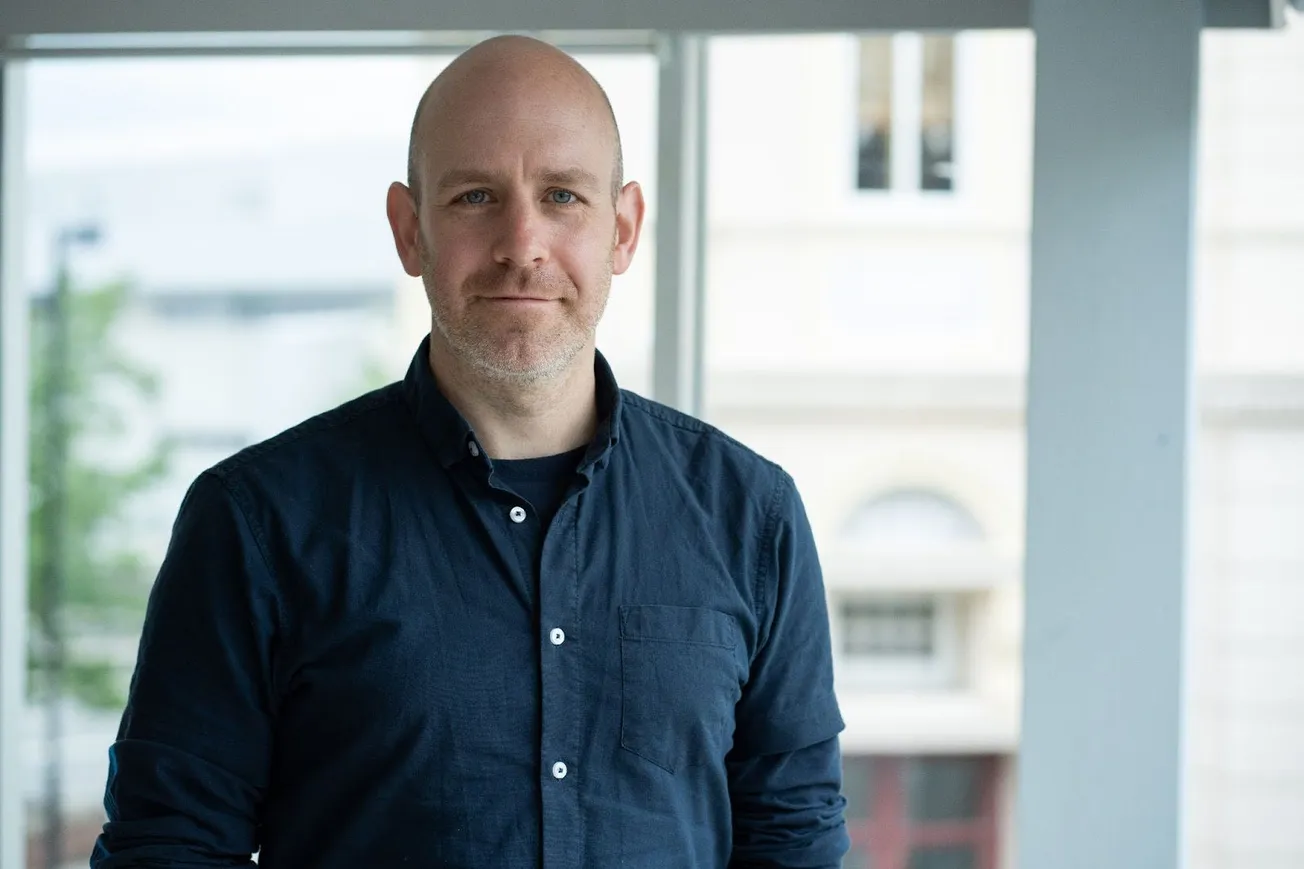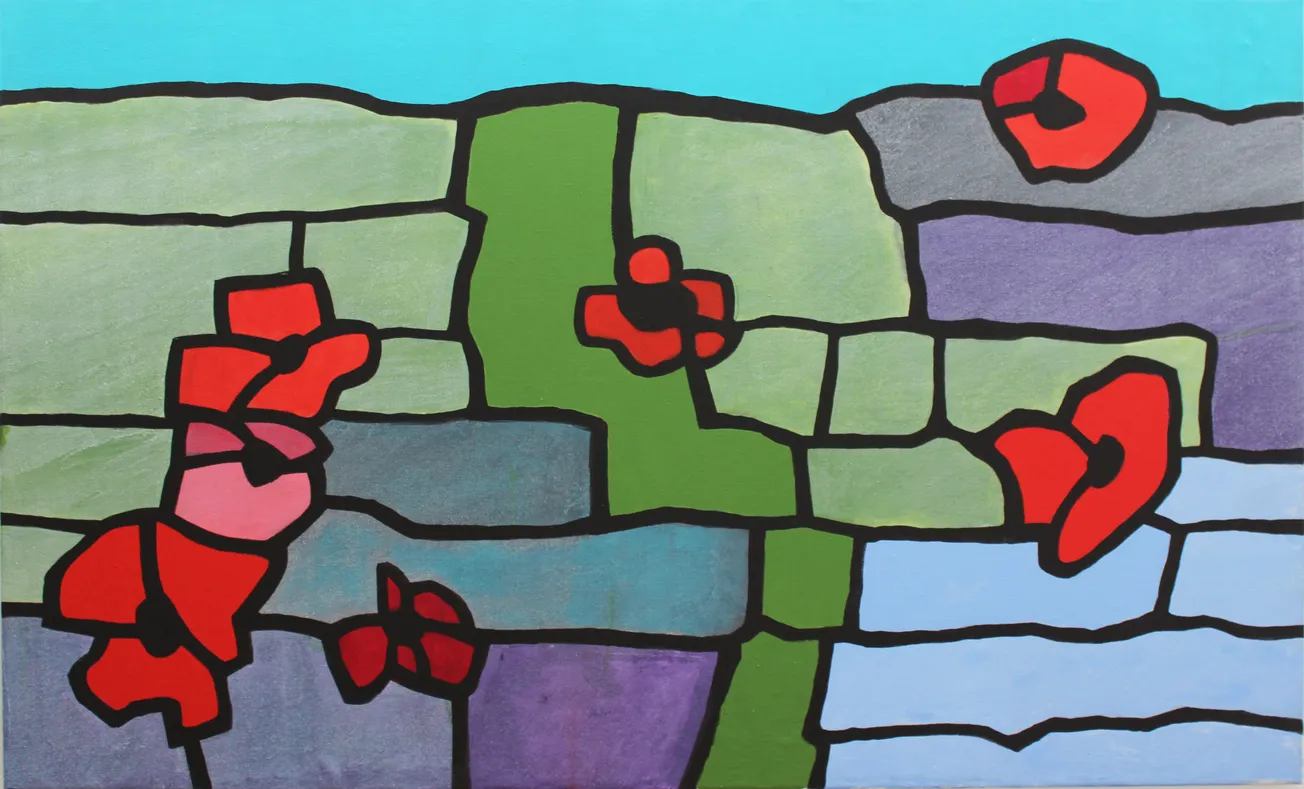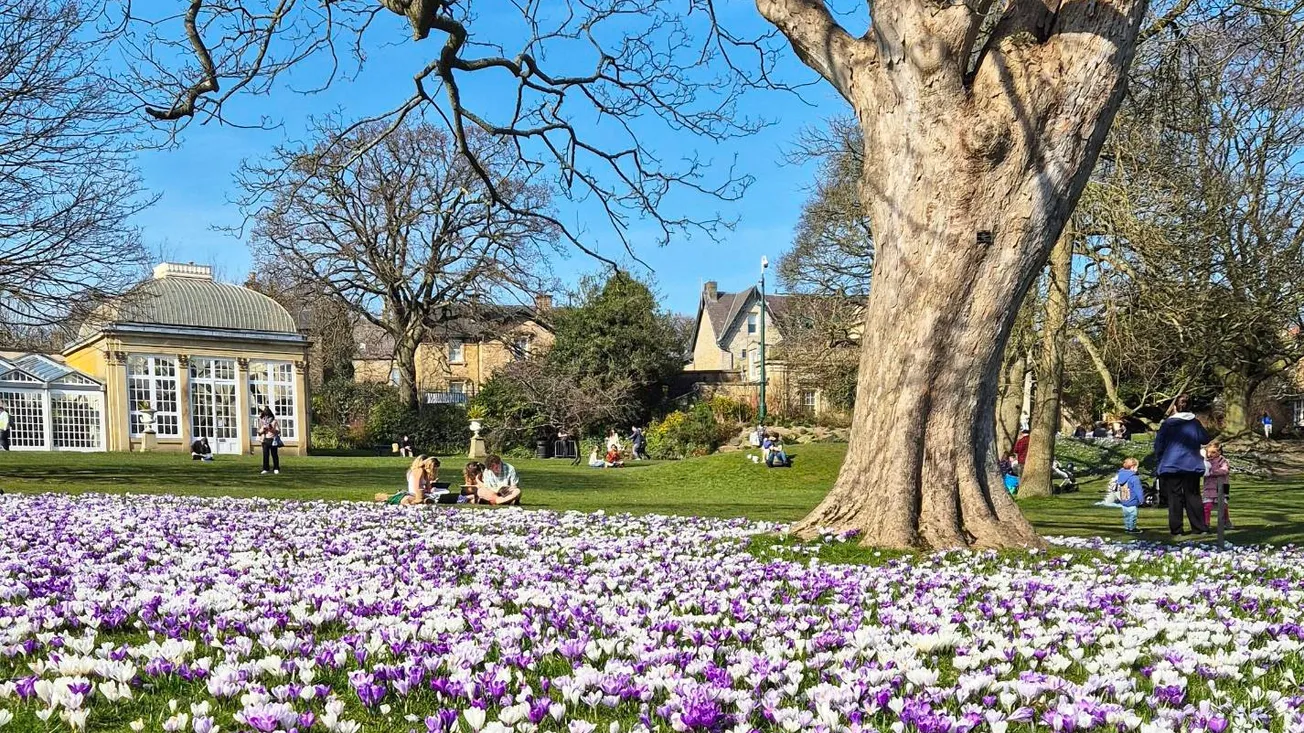Just after 5pm on 16 March 2020, Boris Johnson went on TV to address the nation. With the COVID situation worsening, he told us to work from home, and only use the NHS for urgent care. Almost as an aside, he threw in another line, “You should avoid pubs, clubs, theatres and other such social venues.”
Robert Hastie remembers watching, aghast. “We were completely taken by surprise,” he says. “There was no prior warning, no support, no guidance on what to do.” As Artistic Director of Sheffield Theatres, he was responsible for three theatres — the Crucible, the Lyceum and the Tanya Moiseiwitsch Playhouse — and, with then Chief Executive Dan Bates, nearly 250 employees.
Up until this point, it had been fair to assume that Hastie had one of the plum jobs in the UK arts scene. The three theatres under his remit have a combined capacity of 2,500 seats. Together, they make up the largest theatre district outside London, a proud civic boast the city repeats whenever possible, much like Birmingham’s “more canals than Venice” claim. His predecessor, Daniel Evans, had overseen the Crucible’s £15 million refurbishment, and the Stage named Sheffield ‘Regional Theatre of the Year’ in 2013 and 2014. It verges on understatement to say that things had been going very well for the theatre.

Now, without any formal order to close, all he had was questions. Would the insurance cover the losses? What would audiences think? What would happen to the freelance cast and crew suddenly out of work? The first official lockdown came a few days later. Even then, the fear was that theatres might be closed for a month, not the 16 months it would take to fully reopen.
When I meet Hastie, 46, in the Crucible cafe, lockdown feels very far away. It’s a month before he opens Chariots of Fire, the first show in his final season as Artistic Director. When our interview ends, he worries that we’ve talked too much about the pandemic. But the conversation keeps finding its way back there.
Hastie landed the job in 2016 and by any measure, his tenure has been a success (despite a controversy over The Crucible's production of Miss Saigon last year). Audiences are up, back above pre-pandemic levels. Last year, 380,000 people came to shows at Sheffield Theatres. Another 250,000 saw theatre first made in Sheffield, in London’s West End and on Broadway. Revenues have risen too — last year, Sheffield Theatres Trust reported income of £15.7 million, up from £12.9 million in 2016.
He’s overseen huge creative hits like Standing at the Sky’s Edge (2019) Everybody’s Talking About Jamie (2017) and Life of Pi (2019). Under his leadership, Sheffield Theatres has won more than 20 awards — including Regional Theatre of the Year again in 2017, and again in 2020.
All of this feels particularly striking when you consider the challenges he’s faced in this time. COVID is the most obvious, but not the only one. The cost of living crisis has been a double whammy for live venues — bills have soared while audiences have less money to spend on going out. Government support for the arts has flatlined. It’s notable that despite this, Hastie has rarely played it safe, instead championing stories set in Sheffield, and working with new talent, particularly writers.

“It’s absolutely essential that we don't see a contradiction between making work that has the highest artistic ambitions, and work that can reach the widest audience,” he says. He is adamant that “challenging and progressive” theatre can also be popular. That potential tension, between art and money, is at the heart of the Artistic Director role. It’s an odd combination of creative and practical responsibilities. They are responsible for setting the artistic vision, programming shows and nurturing talent. But they also “run the building” as it’s called in the industry — managing staff, budgets and the spaces themselves.
Actor Lesley Nicol tells me the two roles are very different. “There are some fine directors in the world who can't run a building very well, and some people who run a great building, but can't direct traffic.” Hastie, she says, is a rare leader who excels at both.
Hastie was born and raised in Scarborough, and fell in love with theatre through the plays of Alan Ayckbourn — the world-famous playwright and Artistic Director of the town’s Stephen Joseph Theatre from 1972 to 2009. Growing up, Hastie worked there as a ticket collector and later delivered their posters to local shops.
He studied English at Cambridge and then went to drama school at RADA, but realised in 2011 his true passion was directing, not acting. After a successful stint as Associate Director of London’s Donmar Warehouse, he became Artistic Director of Sheffield Theatres in July 2016, a rapid rise in just five years.
His relationship with Sheffield goes back to his childhood. As a teenager, Hastie came to shows in Sheffield with his parents, who’d been at college here. His first professional acting role was at the Crucible in 2005, in Edward Bond’s socialist retelling of Shakespeare’s King Lear.
From the start, he wanted to make work that spoke directly to the people of Sheffield and to build a deeper relationship with a broader audience. “Theatre made in Sheffield for Sheffield is subtly but profoundly different to theatre that's made in Manchester for Manchester, or in London for London,” he explains. “Over the last eight years, I've learned a lot about how Sheffield works — what makes it tick and what grinds its gears.”
According to Hastie, Sheffield audiences love to champion new things and feel a sense of ownership of the work that originates here, wherever it ends up. As he tells it, we love rooting for the underdog, stories of triumph over adversity. As a city of makers, there’s a level of craft audiences expect to see on stage. He also believes music plays an outsize role in our culture, which is defined by “the richness of different sounds and different musical energies.”
The biggest hits of his tenure have been stories that are set in Sheffield and steeped in its specific culture and history. These local stories have become national, even global hits. Perhaps this isn’t as counterintuitive as it sounds. As globalisation gathers pace, it’s not just Starbucks that look the same the world over — as Kyle Chayka has noted in his theory of “airspace”, even independent businesses have a cookie-cutter sameness: “whether in Odessa, Beijing, Los Angeles, or Seoul: the same raw wood tables, exposed brick, and hanging Edison bulbs.” Maybe this forms part of the reason that theatre audiences increasingly seem to yearn for a sense of the local, the geographically specific.

How else to explain the runaway success of Everybody’s Talking About Jamie, about a boy from a Sheffield council estate who dreams of becoming a drag queen? This transferred to the West End, and was made into a film in 2021. Standing at the Sky’s Edge is an even stronger example of how popular such local stories can become. Written by Chris Bush and featuring music by Richard Hawley, it tells three stories across six decades in the same Park Hill flat. It transferred to London’s National Theatre and onto the West End, charming audiences and dazzling critics.
It’s easy in retrospect to claim the production always had the ingredients of a smash-hit, but on paper it was something of a risk. Hastie realised during the final dress rehearsal that they’d created something special. It was open to the public, and about half the audience were former or current residents of Park Hill.
“If you know your sociology, or you’ve seen the show, you know there’s a lot of mutual suspicion between those two camps,” he explains. But according to Hastie, in the end the two groups “applauded as one” before heading to the bar and ending up drinking together for hours. He argues this was the most powerful example of an oft-discussed topic — that art has the power to change lives or heal communities, to do the things that feel a lot to ask of a performance of Mamma Mia, or even King Lear.
2019 was a big year for Sheffield Theatres, thanks to the runaway success of Standing at the Sky’s Edge and Life of Pi, a gorgeous retelling of Yann Martel’s story of a boy adrift in a lifeboat with an orangutan, zebra, hyena and tiger.
Then COVID hit in 2020, and everything stopped. Sheffield Theatres’ income plummeted, and one third of staff were put at risk of redundancy. Hastie and his team scrambled to react and work out how to keep the organisation afloat as the pandemic dragged on. What would theatre look like if and when things went back to normal, with phased reopenings and socially-distanced audiences? “I learned more in those two years than I've done in my whole tenure — about teamwork, leadership, resilience, ingenuity and loyalty,” he says.
Against this backdrop, Hastie could have reined in his artistic ambition. If anything, it intensified. The Crucible turned 50 in 2021, and Hastie spoke with Anthony Lau, the Associate Artistic Director of Sheffield Theatres, about how to mark the anniversary. It was lockdown, and the pair discussed House & Garden, a pair of plays by Hastie’s hero, Alan Ayckbourn. In 2000, they were performed in two theatres simultaneously at the National Theatre.
“He turned to me with a glint in his eye,” Lau remembers. “And said, well, they have two theatres. We have three…” Opened in 2022, ROCK/PAPER/SCISSORS was a world-first — three plays staged at the same time, with the same cast, in three theatres. It was written by Chris Bush, and set in one of the city’s last scissor factories. Actors ran off stage in one play, raced across Tudor Square, and popped up in another, so the city became part of the spectacle too.
Lau thinks “it says a lot” about Hastie that he conceived such an audacious production in the midst of lockdown. Hastie laughs now at the scale and complexity of the show, which he describes as “a kind of theatrical heist”.
“I think one of the principles that's guided us over the last few years, especially since the pandemic, is how can we give audiences experiences they can't get anywhere else?” he says. “We just took that to its most terrifying, logical conclusion.”

Of course, it’s no use having all these bold creative ideas if you can’t persuade people to buy into your ambition and pull them off. Hastie, like his three predecessors — Dan Evans, Samuel West and Michael Grandage — was an actor who became an Artistic Director. He knows how actors think, because he used to be one.
Natalie Casey, who starred in ROCK/PAPER/SCISSORS, remembers breaking down in tears in the dressing room, overwhelmed by the amount of dialogue she had to learn. “He just sat there and held my hand,” she says. “And I cried, and he cried, and he told me I had to believe in myself. And I went on that night and did it.”
Hastie’s gift for collaboration extends beyond the cast. Whenever a new show opens, he organises a meet-and-greet in the Crucible foyer. Along with the cast and crew, he ensures that all of the building’s teams are represented, from finance and cleaning to security.
Making sure everyone feels included hasn’t just been about the people who work for him, but audiences and artists alike. Shortly after taking the job, Hastie said Sheffield Theatres had to look like the city, and reflect its diversity. Plans to improve diversity and representation often get squeezed or forgotten when times are tough, but he has remained focused on this mission, making progress with diverse casting and talent development programmes. He has also made productions more accessible to deaf audiences, through sign language and audio captions.
But Hastie knows there is still lots of work to do to make Sheffield Theatres more representative. And there has been criticism. In June 2020, Black directors, writers and performers protested outside the Crucible against what organisers called “the tokenistic opportunities” they were offered. In response, Sheffield Theatres issued a statement that acknowledged Black artists hadn’t been given enough space on Sheffield’s stages. “We must and we will do better,” it said.

The backlash against the decision to stage Miss Saigon, which many think is a racist and misogynistic show, was even more intense. The British Asian and South East Asian theatre company New Earth cancelled its show at the Crucible in protest, with a freelance costume and set designer for their production telling us at the time “When I found out we would be bringing our show there when [Miss Saigon] would be rehearsing, I was very upset.”
At the time, Hastie and co-director Anthony Lau said they understood the “upset it had caused” and the problematic elements of the piece as written and traditionally performed. The new performance, they explained, would do things very differently.
With 35,000 tickets sold, it was a commercial hit, but Hastie admits it was a huge learning experience. “We felt that what we were doing had value and justification, and we wanted the work to speak for itself. That's really challenging in a culture where giving intentions the benefit of the doubt has been eroded in our discourse.”
A counterpoint to these criticisms is offered by Mojisola Kareem, who says Hastie has “created visibility for people who wouldn’t otherwise have been seen or heard from.” She runs Utopia Theatre, which makes plays by writers from the African diaspora, and is based at the Crucible. As part of Hastie’s final season, Kareem is directing Death and the King’s Horseman, a play set in 1940s Nigeria.
“It’s the biggest production we’ve ever done and that’s because under his tenure he’s taken Utopia and nurtured it as part of his legacy,” she says. “When you're a Black creative, sometimes you feel like you're taking your begging bowl to get things done. With Rob, it feels like you're getting it on merit.”

But she admits Hastie will be a tough act to follow. He has a new job lined up, but can’t say where. He also believes it’s a good time for new ideas to “refresh the artistic vision” here in Sheffield. And despite all the challenges theatres face, Hastie thinks it’s a dream role for the right person.
“The Crucible is the perfect theatre,” he says. “It’s a brilliant space to tell stories and every time I’ve done a new project there, it has surprised me with something else it can do.” For the new production of Chariots of Fire, the famous race scenes will take place with actors on treadmills, and Hastie is determined to bring the physicality of the story to life. “There’s a stage direction at the beginning of the script that says by the end of the evening, the actors should be exhausted,” he says. “We’re taking that to heart.”
Does he have any advice for his successor? “Enjoy it. Because there's lots about the job and the industry that's tough. But giving people a good night out is a pleasure and a privilege that has always got me up in the morning with a swing in my step.”
Natalie Casey puts it more bluntly. “Good f***ing luck following him.”

Comments
How to comment:
If you are already a member,
click here to sign in
and leave a comment.
If you aren't a member,
sign up here
to be able to leave a comment.
To add your photo, click here to create a profile on Gravatar.







